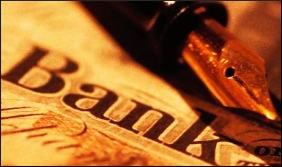|
|
|

|
Banks had tough rides due to NPS, governance issues
|
|

|
|
| Top Stories |
 |
|
|
|
SME Times News Bureau | 06 Mar, 2020
It has not been a very smooth ride for private sector lenders in the
banking history of India with the latest case of Yes Bank falling into
the RBI's interim management before a bigger sovereign structure is
worked under the central bank's supervision.
Poor corporate governance and NPAs have been their Achilles' heel.
Way
back in 2004, the crisis-ridden Global Trust Bank was merged with the
Oriental Bank of Commerce by the Reserve Bank of India. since 2001, the
GTB's name was associated with scams and controversies, thereby casting
shadows over the credibility of the bank and its management.
Due
to the over exposure to capital markets and huge NPAs, the bank was in a
financial mess. When the GTB tried to cover up its monumental NPAs
through under provisioning, the RBI - the central bank and the
regulatory authority for banks in India, appointed an independent team
to review the finances of the bank and this revealed various financial
discrepancies kept covered by the bank.
The RBI had imposed a
three month moratorium on GTB on the ground of "wrong financial
disclosures" and within two days, the bank was merged with the public
sector OBC and lost its separate identity.
On GTB issues, former
RBI Governor Y.V. Reddy wrote in his memoirs "Advice & Dissent":
"Soon after I joined as Governor in September 2003, I had to take a view
on cleaning up GTB.
"GTB continued to be on the list of problem
banks. We sounded leading private sector banks if they could take over
GTB. Surprisingly, they did not evince interest. We decided to act
before it is too late."
In yet another banking crisis, HDFC Bank
had taken over the Centurion Bank of Punjab (CBoP) in an all-stock deal.
HDFC Bank board, in 2008, approved the acquisition for Rs 9,510 crore
in one of the largest mergers in the financial sector in India. CBoP
shareholders got one share of HDFC Bank for every 29 shares held by
them.
This was HDFC Bank's second acquisition after Times Bank
and it strengthened HDFC Bank's distribution network in the northern and
the southern regions. The entire process of the merger took four months
for completion.
In the merged entity, Rana Talwar's Sabre Capital held less than 1 per cent stake against 3.48 in CBoP.
In the recent times, there was the PMC Bank crisis.
The
RBI had superseded the board of crisis-hit Punjab and Maharashtra
Cooperative Bank Ltd, Mumbai and appointed Jai Bhagwan Bhoria as its new
administrator.
The alleged irregularities in the bank came to
the fore when the RBI restrained the bank from doing business activities
for six months and capped the withdrawal by the depositors at Rs 1,000 a
day which subsequently increased to Rs 50,000. It sent shockwaves
through the banking sector as the bank was catering to small depositors,
and the curbs imposed by the RBI stoked the apprehension of another
major scam in the country's banking sector.
Apart from
institutions such as IDBI, ICICI, HDFC and UTI, the Centurion Bank, Bank
of Punjab, Times Bank, Global Trust Bank and IndusInd Bank of the
Hindujas were given licenses as private banks. Barring IndusInd, all the
others have been merged into another bank.
|
|
|
| |
|
|
|
|
|
|
|
|
|
|
|
|
|
|
| |
| Customs Exchange Rates |
| Currency |
Import |
Export |
US Dollar
|
₹91.25
|
₹89.55 |
UK Pound
|
₹122.85
|
₹118.85 |
Euro
|
₹107.95
|
₹104.3 |
| Japanese
Yen |
₹59 |
₹57.1 |
| As on 29 Dec, 2025 |
|
|
| Daily Poll |
 |
 |
| What is your biggest hurdle to scaling right now? |
|
|
|
|
|
| Commented Stories |
 |
|
|
|
|
|
| |
|